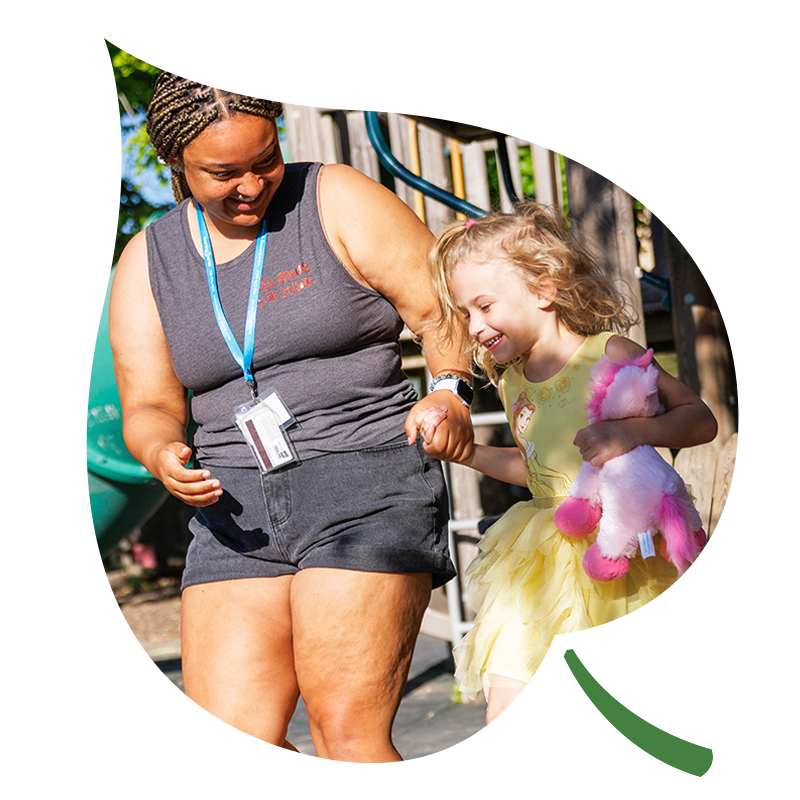Goal
Our overall goal is to improve children’s mental and physical health in Nebraska by creating opportunities for them to benefit from nature-rich learning environments within early childhood programs. We are committed to helping communities with fewer resources — making sure healthy spaces are available to all children across the state.
We will work toward this goal by:
- Identifying key interventions to improve green space access.
- Disseminating research findings and resources broadly.
- Sharing practical best practices and recommendations.
- Building professional networks for researchers and early childhood professionals.
- Preparing the next generation to sustain our mission.

Focus Areas
Together with our partners, we will achieve our mission through three key focus:
Research
Objectives:
- Identify key interventions for expanding green space in programs and share the findings.
- Establish a national research collaborative to address national program gaps and explore policy and practice implications.
- Expand research capacity into environmental factors identified by research such as air quality and noise pollution.
ENGAGEMENT
We are engaging with early childhood educators to provide professional development and design support for creating and maintaining nature-rich learning environments. Engagement is fostered through training opportunities, site activation and community outreach.
Objectives:
- Provide professional development and design support through Nebraska Extension’s Early Childhood Health Outdoors program.
- Develop a platform for sharing materials, recommendations and resources related to creating healthy learning environments.
- Create an early childhood engagement network with educators statewide to support collaboration and idea-sharing.
EDUCATION
We are providing education and hands-on training to UNL students, preparing them to become the next generation of teachers and designers who will carry on our mission to create healthier early childhood environments.
Objectives:
- Offer hands-on learning experiences through the College of Architecture’s design studio to assist community partners in designing healthy learning environments.
- Integrate research findings and best practices into interdisciplinary coursework in psychology, architecture and education.
- Support student researchers through a dedicated research assistance program.
In the News
Below is a selection of news stories and media highlighting the LEAF Initiative.
